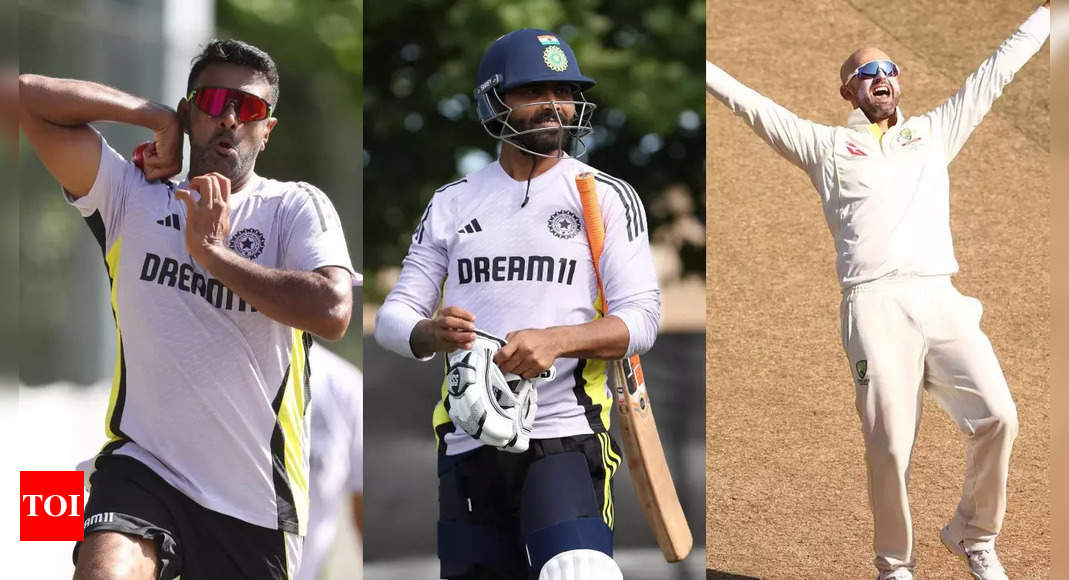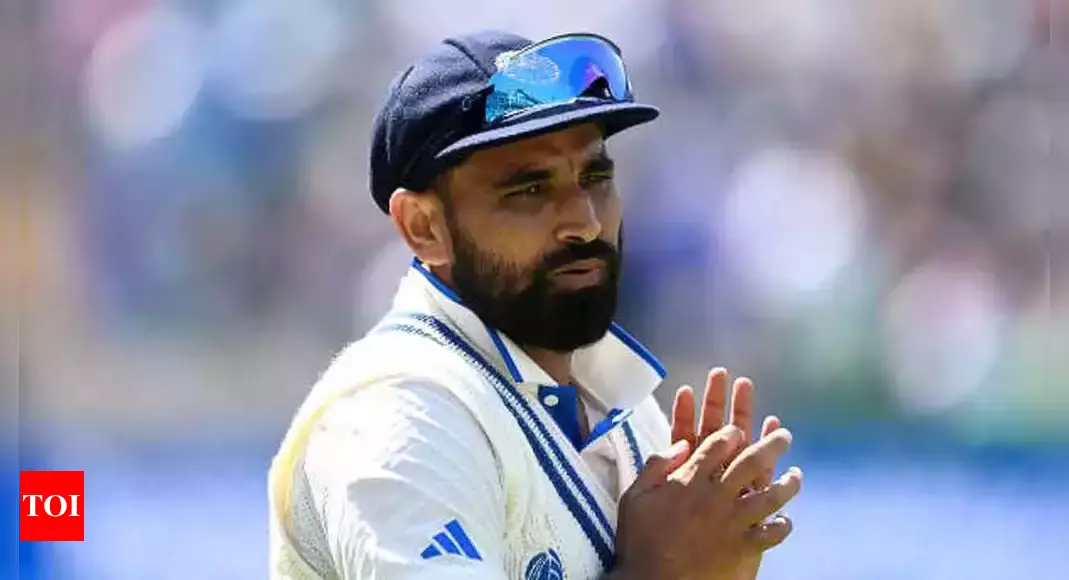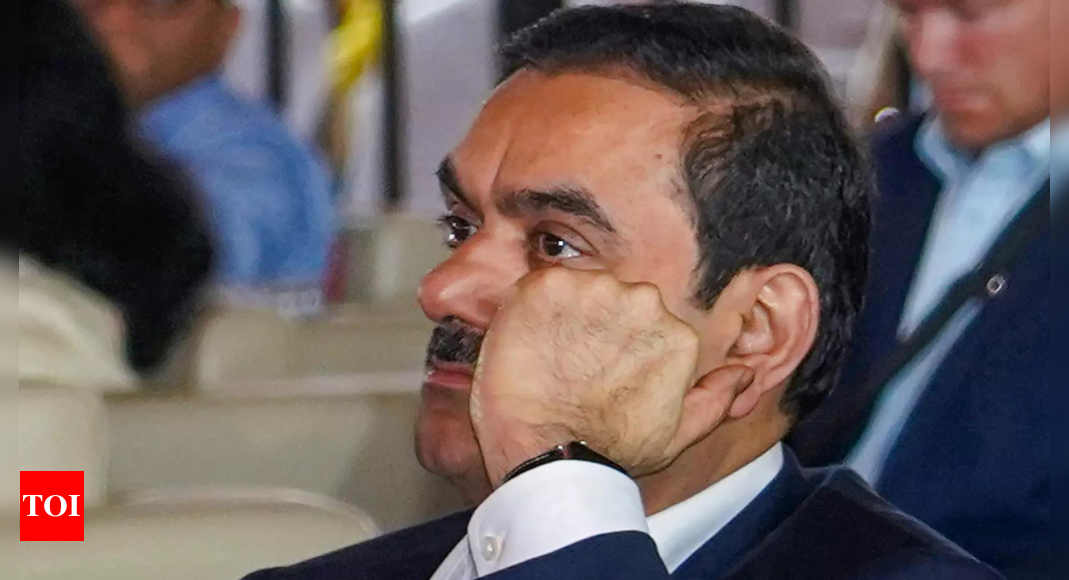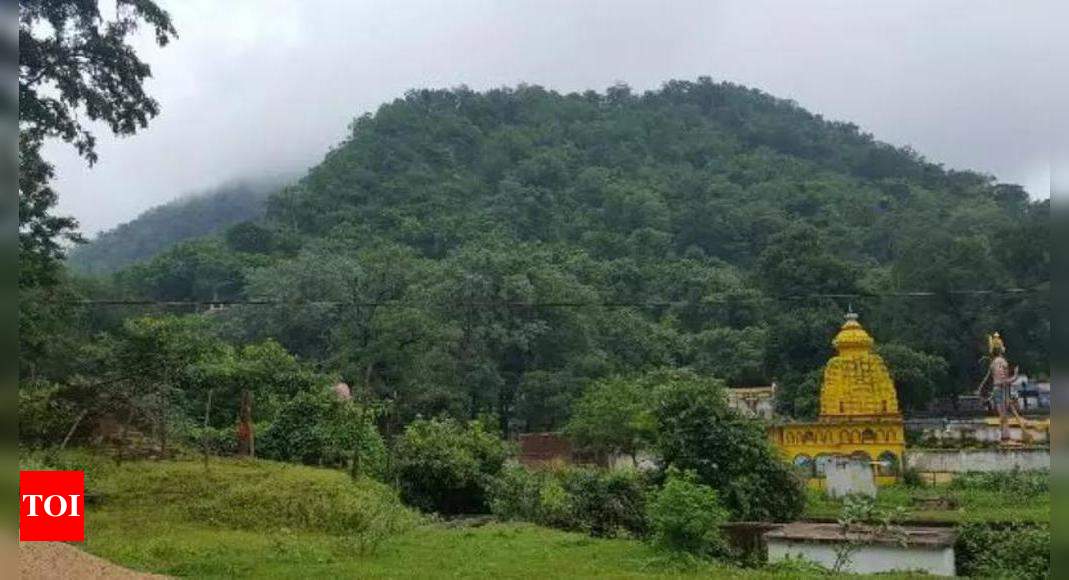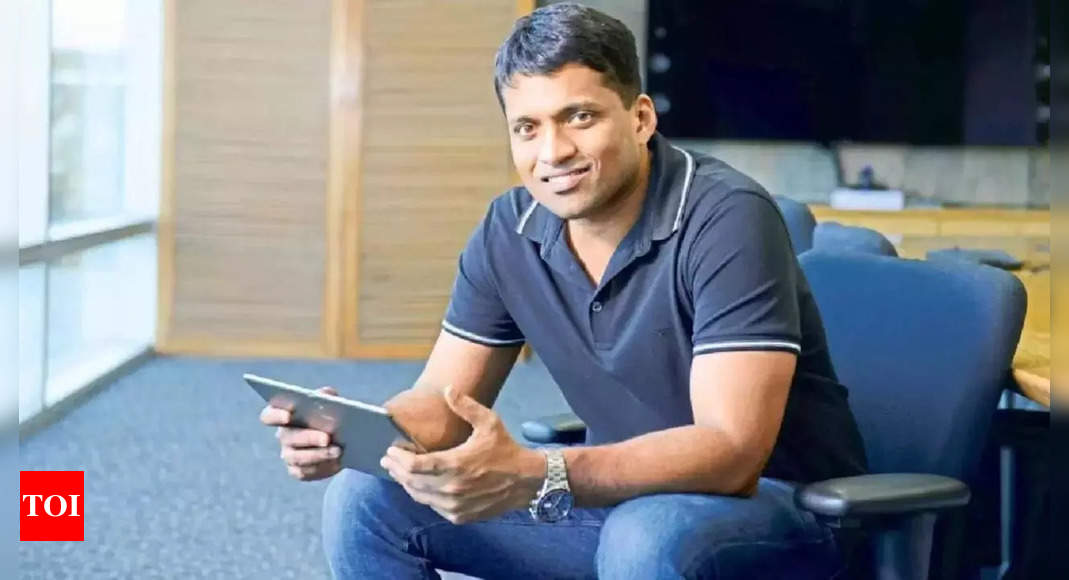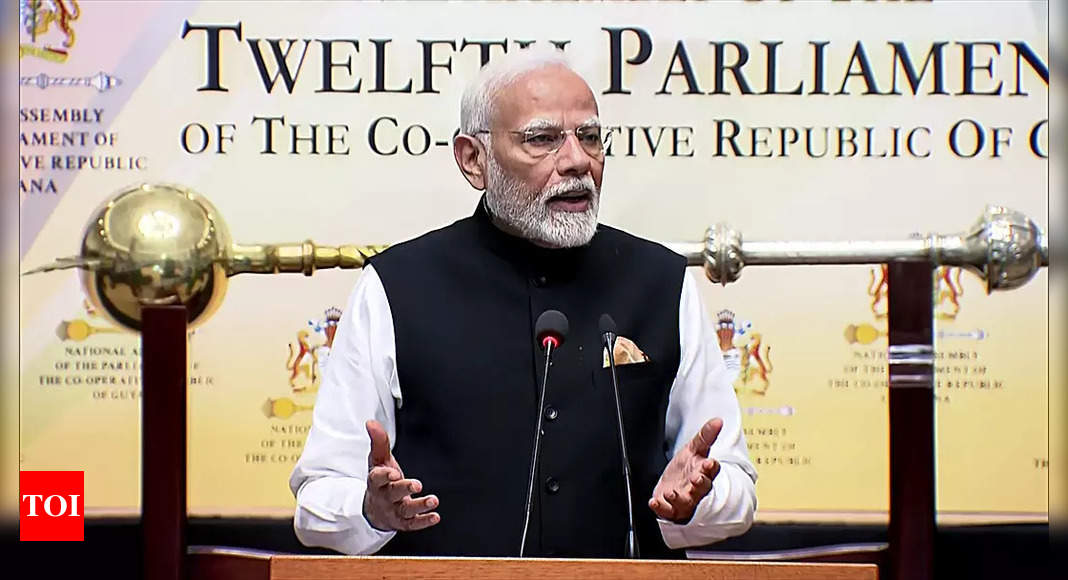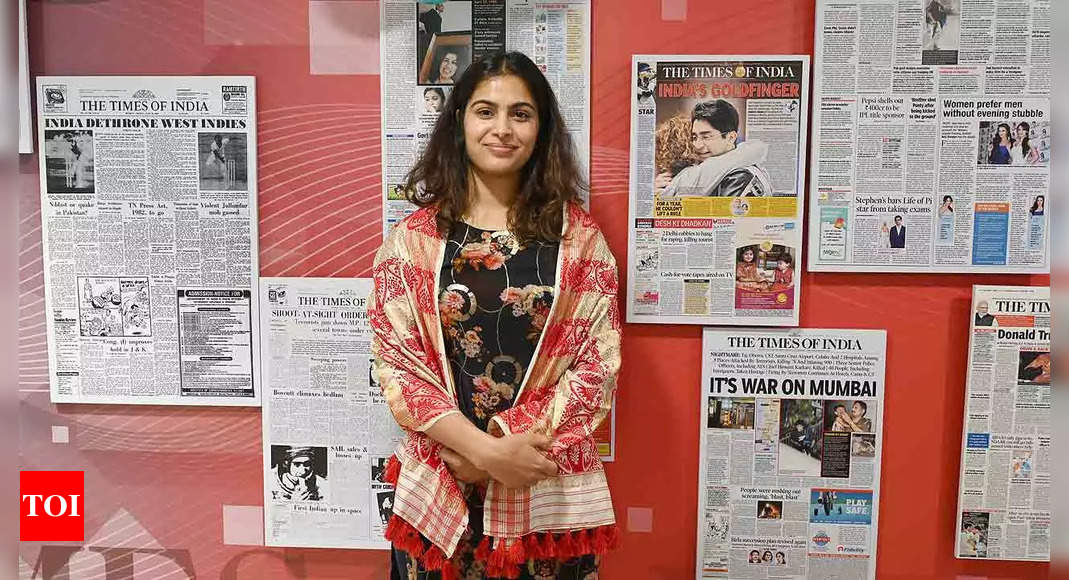
“No, no, wait, wait.” Manu Bhaker stops Jaspal Rana in mid-sentence. It is normal, the interruption. No one minds really. If anything, it sums up best the relationship between the two, oscillating between the once ugly – after the debacle in Tokyo three years ago – to the good-natured banter that marked the double bronze high of Paris this past fortnight.
Jaspal is, if you like, the Bela Karolyi to Manu’s Nadia Comaneci. Sometimes father figure, most times back-slapping pal, full-time coach. Yet, this time when Manu interrupts him, she has something to say that is her own mind, not just a coaching mantra, however well-meant.
Manu Bhaker didn’t need to pick up a gun. Her easy, natural charm is disarming enough. Because when she talks, we are literally eating out of her hand, hanging on to every word, eager to find some elbow room in their private jokes. But with this interruption, Manu Bhaker, is thoughtful, perceptive, telling us how picking up the gun can bring about change in patriarchal and conservative mindsets in native Haryana, and much of India.
“I think one event can bring about some change, but if you want to see bigger change, it has to be persistent,” said the double Olympic bronze winner, somewhere fully aware that her own life has changed with that one last pull of the hair-trigger at the Chateauroux Shooting Centre, some 300km south of Paris, where they fed a goat tethered nearby each day back from the range, just to beat off boredom.
“It takes a lot of time to see significant changes in society. Although we have seen over a period of time how India has changed, we need something to be very persistent in the society and only then we’ll be able to see significant changes,” she held forth, as everyone in the crowded hall nodded.
Manu Bhaker didn’t need to pick up a gun. But now that she has, we, a nation, are eternally thankful.
Excerpts from an interaction…
What are your thoughts now looking at the coverage of your medal wins?
Manu: I did not get to see the newspapers at all. But this is so heartwarming. It feels so good. I mean almost the entire page is dedicated to me. Thank you so much for this.
When you’re shooting, do you ever think of something like this happening when you get back home?
Manu: When we are in the field of play, it’s all about nervousness. So, performance was good although silver was possible. The journey from Tokyo to here has been full of ups and downs. Training and preparation were very good but there was a lot of nervousness on match day.
Jaspal, what did you tell her about your days as a shooter when you were hero worshipped after the Asian Games?
Jaspal: She doesn’t know anything about my days. This generation is ahead in terms of information and technology. They are way ahead of the 1990s and 2000s. Now everything is on the computer.
Manu, we read somewhere that you have Maya Angelou’s ‘And Still I Rise’ tattooed…
Manu: I know (blushes). I didn’t know whose it was, but now it’s mine. I got it in Jan 2022. Now, only when people tell me that I have the tattoo, then I’m like, ‘Oh, I have that tattoo!’
How did it occur to you to get that done?
Manu: After Tokyo Olympics, I was trying to move on, but it was getting difficult with each passing day. So, I was like, ‘You know what? I’ll get a tattoo’. The tattoo reminded me that I had to move on. I really love this tattoo and whenever people remind me of it, it just clicks in my head.
What is the single biggest lesson that you learnt in Paris and what will it take to take you to gold in LA 2028?
Manu: Tokyo indeed taught me many things. Other than luck, I think it’s just that how you build yourself during the training days, how you train, in what conditions you are able to sustain yourself. Of course, how you are as a human being also matters a lot. Olympics is about the day.
You may have read about what Prakash Padukone has said about athletes underachieving, there’s been some controversy…
Jaspal: There will always be controversy. It’s about how you think. We also had a lot of difficulties. We also have a lot of problems, but we did not bypass them. We went through it. I knew that I would not be allowed in the Olympics to sit behind her. So, we started training for it. In all the trials, I was sitting at the back. Sometimes the problem makes you stronger.
After getting your medal, you were quoting the Gita. We believe you also read Mark Manson’s ‘The Subtle Art of Not Giving a F*ck’…
Manu: I think that was a long time back.
Are you a passionate reader?
Manu: I do have books with me. I always have something or the other to read. We are not allowed to carry phones. During flights and traveling, if I’m not sleeping, then I’ll probably read or eat. So that’s that. I really like Usain Bolt’s book (‘Faster Than Lightning’). But during the Olympics, we had a hectic training programme. It was like if you gave me 10 minutes, I would have probably fallen asleep.
Jaspal: We went to meet the ambassador, and she got the Gita from there also. I think maybe some limited edition.
Manu (interrupts): He was talking about the book, and he was like, this is such a good book. I was like, ‘are you gifting it to me?’ Books will always be with me. And I mean flowers will last for hours or 2-3 days. But books always stay.
Does music help you focus?
Manu: Yes, I am a big music listener. Even if I’m driving, I need music. Otherwise, I won’t be able to drive with patience. Same goes with the sports. Music calms me down.
So, sad songs for sad moments?
Manu: It depends how I want to feel. Sometimes I play emotional music and sad music like ‘Maula mere lele meri jaan.’ If I want to feel sad, then I’ll feel sad and play sad music.
How long do these feelings stay with you?
Manu: If I feel sad about something, I will solve it. I will cry over it, I will solve it and then I’ll put it in the past. I do not like to carry it with me for future events or in daily life.
Jaspal: There’s no time for this. Like the first medal, there were too many interviews and all. Next morning she had to be on the range by 7.
Can you tell us about your emotions in all the three events in the Olympics?
Manu: I think this time around we put in equal amount of effort in all three events. We were training for 10m, we were training for mixed doubles, and training for 25m equally well. The workouts, the meditation and everything. I was always aware that I’ll be shooting in three events.
Jaspal: If you see her scores, I’m happier with the third event (25 metre pistol where she missed the bronze). It’s about the day, the day decides.
Shooting is not considered as a physical sport. How much emphasis do you put in physical fitness?
Manu: I’ll give you an example. If you are writing an exam, you have to be very well prepared and you have to manage the time also. You practice that. And it’s like you have to practice to be able to stand for a longer period of time. You have to practice to sustain for a longer period of time. Because in a sport such as shooting, we do not have major injuries, but we do have minor injuries. And minor injuries can affect your career badly. There was a scapula injury I was struggling with last year. And then we have elbow, knees, lower back injuries. We also have neck injuries. To maintain our posture and to be able to deliver for a longer period of time, you have to be fit.
Jaspal: You need more strength to stand in one place for two hours than walking for two hours. They need to stand still till the last shot. So, you can imagine the kind of fitness they need.
Manu: Physical health also affects your mental health. And I really believe that if you’re physically fit, you will probably be more confident and feel mentally more stable.
What do you take from the Vinesh Phogat’s journey – coming from protests to this winning position in the Olympics?
Manu: She has been a fighter. She had to struggle with many things. And even despite her previous journeys in the Olympics, she did not give up. She is not a kind of person who will give up on anything. I do not know the technicalities of those situations, the protests and the current situation. I do not know the deeper version of it. But to me, I have huge respect for her. She’s been like an elder sister to me. It’s the spirit that she carries that ‘I’ll fight, I’ll fight till the end’. I go by that.
Why didn’t sportspeople stand up for them when they were protesting?
Manu: I think many people did stand up. It also depends on person to person if they want to be engaged in something. We have back-to-back competitions and there’s something happening in our lives also. I do not have phones with me. I do not carry anything. I do not get time to read newspapers and all. If something is going on, I’ll be the last person to know.
With your progress what changes do you see in your native Haryana now?
Manu: Earlier, sports was a kind of taboo, but I see that changing. Many parents are supportive of their daughters and their careers. But we have a long way to go. We cannot be like, ‘Okay, one, two, three… parents are allowing their girls, and we have made a change.’ Yes, there is a change, but we need to go even further.
In the old days, the coach used to be like a command-and-control person. But now, it’s a lot more give-and-take between the coach and the athlete…
Jaspal: It’s completely what she wants, and I have to mould myself around that – the training, the technique she has. It’s her technique. I just work around her technique. Even my shopping style has changed because of her shopping. I spend more time in the ladies’ section because she stays in the gent’s floor for about five minutes. We need to protect them; we need to take care of a lot of things.
Manu: (Laughs) What will I do in the gents section?
We saw Turkish shooter Yusuf Dikec who shot without any gear on…
Jaspal: It’s a matter of practice. I shot 10-15 years without gear. But when you want to get better, you need these (equipment). Manu never used shooting glasses but I forced her to do it. We try to get the best technology because you are up against the best players. Every now and then somebody comes up and shoots without anything and becomes a winner and goes home a hero. But the point is when you fight, you need to be prepared.
Did you look at the memes on Dikec?
Manu: I’m aware. There were comparisons between the Korean shooter and the Turkish shooter, but that’s how it is. The Turkish shooter is a natural. He is 52 and has had a long career. Every person has a style of shooting. Some people use caps, some use glasses, some earphones. Some use everything, some nothing. It’s just a matter of how you get used to equipment. Earlier, like 30 years back, I don’t know if shooters had access to this kind of technology.
Jaspal: In 25m, they shoot with firearms, and gunpowder comes out. So, fire protection is required. You need to have earmuffs because after 50 you don’t want to go deaf. We need every little protection provided.
Manu: Plus 10m (air pistol event) doesn’t require much protection.
Earlier, shooting was a very quiet sport. After rule changes, even loud music is played when shooters are in action. How do you adjust?
Manu: We have practiced every situation in training, everything that can happen during our matches. The atmosphere is different everywhere. During the trials before Paris, it was very quiet. We had no music. In international tournaments, sometimes the music is so loud or totally quiet.
In a sport where margins are so thin, how do you champions get themselves in the zone on the day that matters, especially on the Olympic stage?
Manu: It’s all in the mind. Your training talks during high-pressure situations. You have to work for it. Two months before the Olympics, we started training at exactly the same time of the qualification stage, the finals.
Do you have any techniques for honing the mental side of your game? Are these training methods secret?
Jaspal: It’s not secret. If you are not able to see what people are doing, then it’s a secret. Just like in journalism, you have to keep your eyes open.
What do you do for mind training?
Manu: I read the (Bhagavad) Gita, usually. My physical fitness definitely helps me to be on my toes as well as be mentally fit. If anything bothers me, I talk to my mom, my dad, my brother. Even to (Jaspal) sir. I write journals. Meditate before bedtime. I read Gita before sleeping, it just stays with me. I have been reading the Gita since the last 7-8 years. Before that, my mother used to teach me, guide me, and keep mentioning the shlokas. For me, the ultimate one is focusing on your karma, not to think about the outcome.
India won a lot of bronze this time. To win silver, it’s said you have to lose the gold, but for a bronze, you have to fight for the medal separately …
Manu: Yes, I’ve seen people not being happy with silver. But with a bronze they are kind of happy because they fought and they won. In the mixed team event, me and my partner Sarabjot actually fought for the medal. But yes, gold is gold, nothing like it.
At the Olympics, there was very little difference between bronze and a silver…
Manu: (Laughs) Yes, I see the headline here ‘Manu misses silver’ and then the report states ‘Manu shot at 10.3, scored a 10.5’. So, there are very minor margins to win or to lose. In our sport, it’s not him versus me or her versus me, it’s more like how you as an individual are doing. That counts. Both medals are equally important. The second one was either you win third position or you lose. The first match was like, you have an opportunity to win the gold too. My scores were very good; however, I missed the silver by 0.1, the gold was also missed.
What will you do to get gold in LA?
Manu: It will be different, there will be the weight of expectation.
Jaspal: That’s fine. That’s natural because that’s what we train for. So, we will give our best and do better than this time.
Manu: We have to push a little harder. With more pressure, there should be more effort. Experiment-wise, though, I don’t think too much experimentation will succeed.
Is the Tokyo chapter closed?
Manu: The Tokyo chapter is an experience and will always be there with me. The experience will be there.
Jaspal: What happened in Tokyo? (laughs)
Do you see yourself shooting 10-15 years from now?
Manu: Yes, absolutely.
Jaspal: Even I can, I will be 53, 52 (like Dikec) during the next Olympics.
In Paris we had a 21-member contingent. What’s your assessment about our performance?
Jaspal: All of them shot brilliantly. If you see the skeet event, mixed team, Arjun Babuta, Sarabjot – all reached the final. So, we have several talented shooters. It’s only about protecting them. How do we protect them? I think the authorities have to work on it… SAI, the federation, government, TOPS, everybody has to start working on it. Protecting a talent is a task.
When you’re saying protect a talent… what exactly do you mean?
There will be a lean time for every sportsperson. It’s during that time that you need to look after them. There is no talent protection in our country. Saurabh Chaudhary, you remember the name? What was Saurabh Chaudhary‘s score in Tokyo? He was outstanding in Tokyo, just didn’t win a medal. What did we do to protect him? Nothing.
Do you have Taylor Swift on your current playlist?
Manu: I mean, few songs of hers, yes, but it’s like more like Karan Aujla, Diljit Dosanjh, Arijit Singh for me. And then the 1990s (looking at Jaspal).
What is your physical routine like?
Manu: I take around like 2 hours in the gym every day. Every day, like five times a week. Or if my matches are going on, I’ll work out every day. And the workout would be like, depending on the matches and all. So I will do my warm-up, then I’ll do my rehab. Rehab for all the muscles and everything for injury prevention. Then I’ll strengthen those small muscles for long-term injury prevention. And then I’ll do the strengthening and then the cool down.
What have you been eating since returning from Paris?
Jaspal: She gave up the sugar two days back.
Manu: Kal hi ice-cream khayi thi (I had ice-cream yesterday), samosas and all.
Jaspal: But she’s honest that way, that she doesn’t cheat on exercise, training, eating and all.
What do you crave for?
Manu: Abhi tak toh ghar gayi nahi hu. Mummy ke hath ka khana nahi khaya hai maine (I haven’t been home yet, haven’t eaten meals cooked by my mummy). Abhi jaate hi I will be like ki give me a aalo ka parantha!
‘VOWED THAT MY DAUGHTER WOULD MAKE HISTORY’
“I always asked God for a daughter, and I vowed that if I had one, I would ensure she would do something that would go down in history,” Manu’s mother, Sumedha Bhaker told TOI. Manu’s father, Ram Kishan, recounted that Manu was always a natural sportsperson. “One day she’d be boxing, one day she’d be into karate. She used to be playing something or the other all the time.” Was it difficult to encourage their daughter’s sporting interests in a conservative environment, TOI asked.
“When Manu was still very young, I did the karva chauth fast. That day, I made my husband put his hand on my head and swear that he would let me move to a city with the children if we needed to. Whenever I did a fast, as a gift I always asked for something that would help the children,” said Sumedha. “I was determined to fulfill my vow.”
She certainly did, and India owes her a debt of gratitude.


